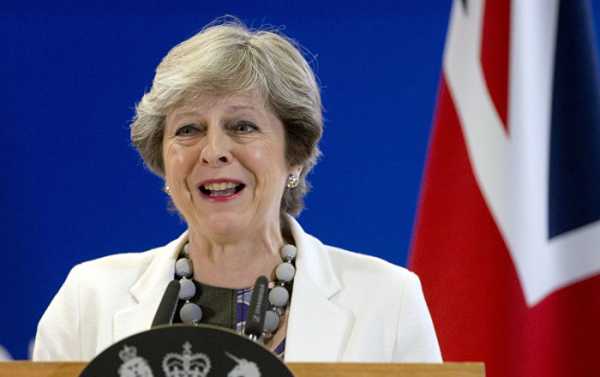
British Prime Minister Theresa May is set to meet with German Chancellor Angela Merkel in Berlin later on Thursday to discuss the progress of Brexit talks, as well as the future of the UK-EU relations.
Amid Brussels’ calls to clarify the UK’s positions after its exit, the prime minister’s office has laid out its new plan, dubbed the “facilitated customs arrangement,” to be unveiled to ministers on Friday. The plan would reportedly offer “the best of both worlds,” allowing Britain the freedom to set its own tariffs on imported goods and maintain frictionless trade with the EU.
After two previous proposals caused a stir among cabinet members, May’s office has come up with a “third-way” option, suggesting a certain mechanism, to help determine where the products will ultimately end up, and whether UK or EU tariffs should be applied.
The plan is likely to partly enter into force by the end of the proposed transition period in December 2020 – and will fully take effect by the next general election.
While it’s understood that the UK would reflect the bloc’s rules, with the parliament having the right to decide what to turn aside, it remains unclear whether the cabinet will support the plan, or whether the EU will even accept it.
Among the proposals, which May is due to present to the ministers on Friday, is reportedly solving the problem of new checks on the Irish border once the UK leaves the customs union.
The prime minister earlier reaffirmed her commitment to prevent the establishment of a hard border between Northern Ireland and the Republic of Ireland after Brexit is delivered.
Her resolve to pull the UK out of the EU’s single market and customs union has complicated her endeavors to preserve friction-free trade across the Irish border, which is a condition for Dublin’s endorsing the final Brexit deal.
May has found herself in the middle of heated debates in her government, as the cabinet split over the future of the country outside the EU: while pro-EU MPs have been pushing for closer ties with the bloc, Brexiteers have been demanding a clear institutional break from Europe.
Beyond the pressure from her party members, May has been squeezed by the EU to decide what the “UK wants,” with the head of the European Council, Donald Tusk, warning the prime minister that the latest round of talks in Brussels was “the last call to lay cards on the table.”
The UK is set to divorce the EU on March 29, 2019, but negotiations are stuck on the terms of trade with the remaining members of the bloc, who are part of a single market and a customs union.
Theresa May’s cabinet is expected to meet on Friday at Chequers, the prime minister’s country house, to finalize the UK’s Brexit policy. The summit will be followed by a White Paper, revealing more details about the plan.
Sourse: sputniknews.com






